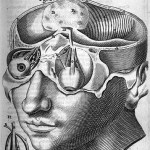Human Brain Project
With 2001 in the rear-view mirror, there have been no little green men, no meal-replacement pills, no flying automobiles, no space odysseys. But as big-budget plans to model the human brain prove, proponents of artificial intelligence remain hopeful. In its most literal sense, AI exists already: encoded and executed, endowed with sensors, lenses and microphones, connected to the internet, and stuck in your pocket. But how intelligent does a machine have to be before our worst nightmares come true? Intelligent enough to pass a Turing test? Intelligent enough to nuke the human race? And/or…
Over 600 (as of this writing) neuroscientists from around the world, but with a very large proportion representing Europe, have written an open letter expressing concern with the Human Brain Project (HBP) and its cousin the U.S. BRAIN Initiative. It appears that the neuroscience community regards these projects as of relatively low value, while at the same time, these projects are sucking up a very large proportion of the funding for neuroscience. From the letter.
... Many laboratories refused to join the project when it was first submitted because of its focus on an overly narrow approach…

